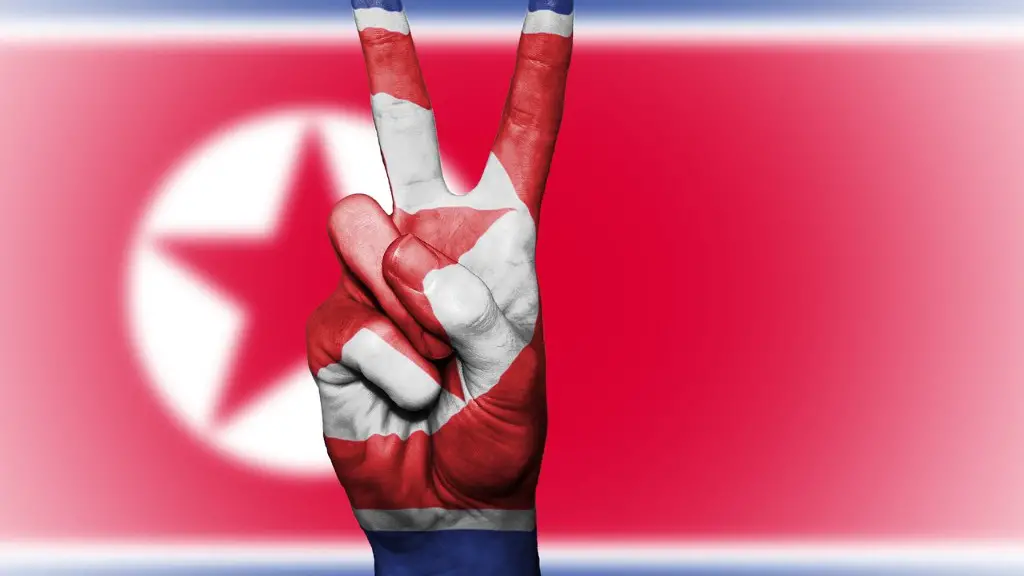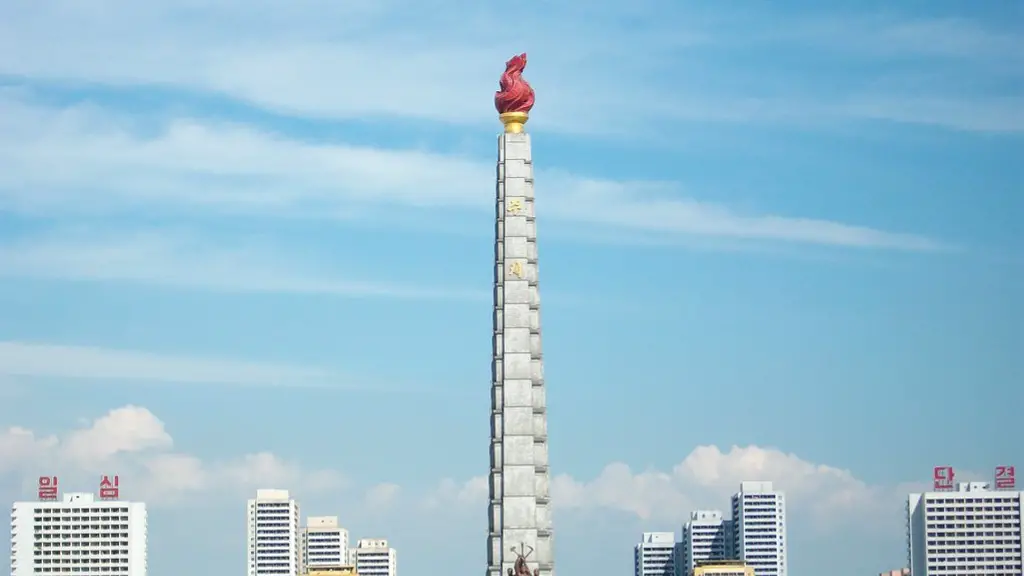Is North Korea Really A Threat?
North Korea has been seen as a global threat since its nuclear weapons capability was established in the mid 2000s, and while there is much speculation as to what is really going on in the country, few have reliable information. Understanding the geopolitical goals behind North Korea’s actions is key to understanding their actions and ultimately knowing what the real threat level is.
The motivation for many of the country’s actions is the protection and preservation of its leader, Kim Jong Un. To ensure the leader’s safety and political legitimacy, North Korea has become increasingly aggressive in its rhetoric and militaristic activities. It openly threatens to launch a nuclear-tipped missile attack on the United States, Japan, South Korea, and other neighboring countries.
In addition to its military might, North Korea also uses cyberwarfare as a form of warfare against other nations. North Korea is believed to be behind the Sony Pictures hack of 2014 and the WannaCry ransomware attack of 2017, which affected 200,000 computers in 150 countries.
Given the country’s suspicious military and cyber capabilities, many experts have called for an investigation into the actual nature of North Korea’s government and the legitimacy of its leaders. Others have suggested sanctions as a way to force North Korea to end its nuclear weapons program, as well as its human rights violations and other war crimes.
However, it is important to note that not all of the nation’s actions are intended to be threatening. Despite the bellicose and threatening rhetoric, North Korea does display signs of progress and openness, such as when in 2018 it invited foreign journalists to witness the dismantling of its Punggye-ri Nuclear Test Site. Similarly, during the 2018 Winter Olympics in Pyeongchang, North and South Korea marched together under a unified Korean flag in an unprecedented display of unity between two countries that were technically still at war.
Economic and Humanitarian Concerns
North Korea is an impoverished nation, and its government has imposed a wide range of economic sanctions since its nuclear weapons program began. Sanctions, combined with the country’s extreme isolationism has resulted in a population that lacks basic necessities and amenities. The North Korean people experience routine shortages of food, medical supplies, and other basic necessities and suffer from extreme poverty.
The dire economic situation has also resulted in severe human rights abuses, with reports of forced labor camps, political imprisonment, and state-sponsored torture. The situation is especially dire for North Korea’s estimated 120,000 political prisoners, who are denied all basic human rights and are often subjected to extreme forms of torture and abuse.
Compounding the country’s poverty and human rights issues is its rising debt. The nation owes billions of dollars to various lenders, and has resorted to desperate and unethical measures to obtain money, such as selling nuclear materials and counterfeiting.
U.S.- North Korean Relations
The U.S.- North Korea relationship is one of the most complex and fraught political relationships in the world. President Donald Trump has traded tweets with Kim Jong Un and met with him several times. Kim agreed to shut down missile tests and nuclear activities, but later refused to give up his nuclear weapons and the U.S. and North Korea have since returned to a confrontational stance.
The U.S. has long sought to confront North Korea’s nuclear ambitions and other aggressive behaviors, and while there was some initial hope that negotiations might yield a peaceful outcome, those hopes have not been fulfilled. It is clear that both countries have different interests and objectives, and a diplomatic resolution remains elusive.
What Can The Region Do?
Though the U.S. and North Korea are at odds, the rest of the region, including Japan, South Korea, and China, have sought to take more conciliatory approaches to dealing with North Korea and its aggression.
For one thing, the region could increase economic assistance to North Korea in order to help the nation improve its infrastructure and living conditions. This could create a more favorable environment for talks and negotiations, and could also help to reduce tensions between the two countries.
Additionally, regional powers could also use diplomatic and political pressure to push North Korea toward an eventual peaceful solution. This could involve pressuring China, which is North Korea’s ally and largest trading partner, to take a firmer stance on North Korea’s aggressive actions.
Inter-Korean Relations
Though the relationship between North and South Korea has improved in recent years, there has still been little in the way of concrete progress toward reunification. The two countries remain technically at war, and the DMZ between them is acutely militarized.
In order for progress to be made, there needs to be increased dialogue and cooperation between the two countries. Open dialogue is essential to finding a lasting solution to the divisions between the two countries, and to avoiding escalation and war.
There have been a few promising moves in this direction, such as North Korea sending athletes to the 2018 Winter Olympics in South Korea. However, while gestures of goodwill and signs of progress are encouraging, they are still far from enough to truly bring the two nations together again.
Conclusion of War
The Korean War of the 1950s ended without a formal peace treaty, and the United Nations technically still considers North Korea and South Korea to be engaged in a state of war. So far, attempts to negotiate an end have failed, and it remains to be seen if the current tensions between North and South Korea can be resolved in a lasting way.
Where Things Stand Now
Despite numerous attempts to forge peace and understanding, tensions between North Korea and its neighbors remain high. After several years of provocative missile tests and aggressive posturing, many international observers are unsure of what to make of the situation.
The international community has reacted differently to North Korea’s increasingly extreme foreign policy and military posturing, with some countries focusing on diplomacy and negotiation while others have pursued a hardline approach. Until there is a lasting diplomatic solution in place, many experts are unsure of what the future holds for North Korea and the region as a whole.
Prospects for the Future
Despite North Korea’s current posturing and belligerence, it remains possible that the crisis could eventually be resolved through diplomacy. Several high-profile negotiations have taken place in recent years and resulted in a few positive outcomes, such as the landmark 2018 summit between Donald Trump and Kim Jong Un.
However, actual progress toward peace remains elusive. Until there is a lasting resolution to the Chinese-Korean stand-off, it is difficult to predict what the future holds for North Korea and the region as a whole.
Role of Other Nations
While some of the resolution to the crisis lies in the hands of North Korea, it is important to recognize the role played by the other nations involved. China, Japan, South Korea, and the United States, along with other international organizations, can all play a part both in applying diplomatic pressure and providing economic aid to North Korea.
If the affected nations can come together and work to foster a more cooperative environment, it could lead to a resolution of the crisis and a more secure future for the Korean Peninsula.
International Constraints
International organizations such as the United Nations, the International Atomic Energy Agency, and the United States have also imposed numerous sanctions and restrictions on North Korea, which have severely limited the country’s ability to engage in international trade and finance. The sanctions have had a devastating effect on the North Korean economy and have exacerbated the dire humanitarian situation in the country.
These constraints have also limited the ability of the international community to directly intervene in North Korean affairs, and have made it difficult to obtain reliable information about what is really going on inside the country.
In the absence of reliable information, it is difficult to know what the real threat from North Korea is, and what can be done to address it.


